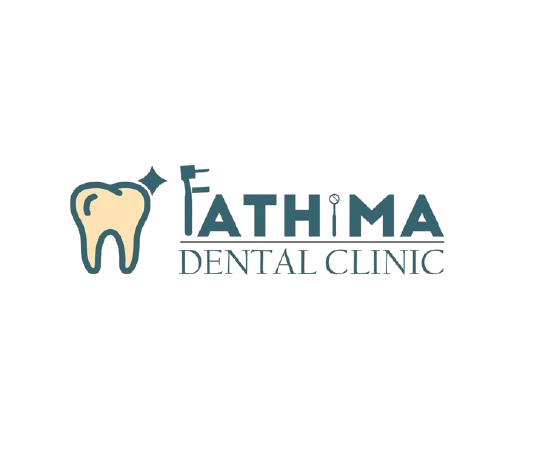Skip The Waiting Room!
Register Online Before You Arrive.
We have up to date schedules, contact information, & let you book appointments online.
Ceramic vs. Zirconia Crowns: Which One Is Right for You?
When it comes to dental crowns, choosing the right material is essential for both aesthetic and functional reasons. Ceramic and zirconia crowns are two popular options that provide excellent durability and a natural look. But how do they compare, and which one is the best choice for your smile?
Ceramic Crowns
Ceramic crowns are known for their natural appearance, making them an ideal choice for restoring front teeth. Made from high-quality porcelain, these crowns are designed to blend seamlessly with your natural teeth color. They are highly resistant to stains, ensuring that your smile stays bright and beautiful. However, ceramic crowns are slightly more prone to chipping compared to zirconia, especially in the back teeth where more pressure is applied.Zirconia Crowns
Zirconia crowns are dental restorations made from zirconium dioxide, a biocompatible ceramic material known for its strength, durability, and aesthetic potential. They are a popular choice in modern dentistry for restoring both front and back teeth due to their balance of functionality and appearance.Which One Should You Choose ?
- Aesthetic Needs: Offer the most natural, lifelike appearance due to their translucency, which mimics natural tooth enamel.
- Durability: If durability and strength are your top priorities, especially for back teeth or areas with heavy biting pressure, zirconia crowns are the superior choice.
Conclusion
Ceramic crowns are dental restorations crafted from high-quality dental ceramics, typically porcelain or similar materials. These ceramics are specially engineered to mimic the appearance and properties of natural tooth enamel, offering a combination of aesthetics and functionality.
The primary material in zirconia crowns is zirconium dioxide, a ceramic material known for its strength, toughness, and resistance to wear and fracture.
Ceramic crowns closely mimic the natural translucency of tooth enamel, reflecting and transmitting light in a similar way.
Zirconia is one of the strongest dental materials available, with a strength rating of over 900–1200 MPa (megapascals). This makes it highly resistant to fractures, cracks, and wear.
Ceramic crowns are highly translucent and closely mimic natural tooth enamel, making them ideal for patients who want a natural-looking restoration, even for back teeth that are slightly visible when smiling.
Traditional zirconia crowns are more opaque compared to ceramic crowns, which can make them appear slightly artificial, especially when used for front teeth they are better suited for back teeth
Ceramic crowns, while durable, are more prone to chipping or cracking under excessive force Avoid chewing on hard items like ice, hard candies, or nuts to prevent damage to the crown.
Teeth grinding (bruxism), poor oral hygiene, and lack of regular dental check-ups may affect the crown’s longevity, but zirconia is generally more resilient to these issues than ceramic.
If you grind your teeth at night, wearing a nightguard can protect both ceramic and zirconia crowns from wear.
The price may be influenced by whether the ceramic crown is made from porcelain (more affordable) or lithium disilicate (which is generally a bit more expensive but stronger and more durable).
Zirconia crowns are extremely durable, which makes them great for patients who have a strong bite or teeth grinding habits. However, their hardness can sometimes cause issues for patients with sensitive teeth.
In some cases, if the damage is minimal and only affects the surface, a bonding agent may be used to smooth the affected area. However, this is only effective for minor chips and will not restore the strength or appearance of the crown.
If you tend to grind your teeth (bruxism) or clench your jaw, it’s essential to discuss this with your dentist. Grinding can cause excessive stress on the crown, leading to cracks or wear.
Here are industry experts who can help you

Dr.Juhi Anand B.D.S., M.D.S.,
ENDODONTIST - ROOT CANAL SPECIALIST

Dr.Navya Sree. B.D.S.,M.D.S.,
Consultant orthodontist , Braces Specialist , Fathima Dental Clinic .

Dr. Juhi Thomas Bds., CGD ( CMC )
Aesthetic Dental Surgeon , Fathima Dental Clinic

Dr.Mounika B.D.S.,CTCS.,
Dental Surgeon , Tobacco Cessation Specialist

Dr.S.Tanuja.,B.D.S., M.D.S.,
Oral Medicine & Radiologist . General Dentist

Dr.R.AArthi., B.D.S
DENTAL SURGEON

Dr.A.Faaizah Tabassum.,B.D.S
General Dentist
Need some advice from our experts?
Request a Call Back Today Now!
We will make a single attempt to contact you from a withheld number, usually within 24 hours of your request.


